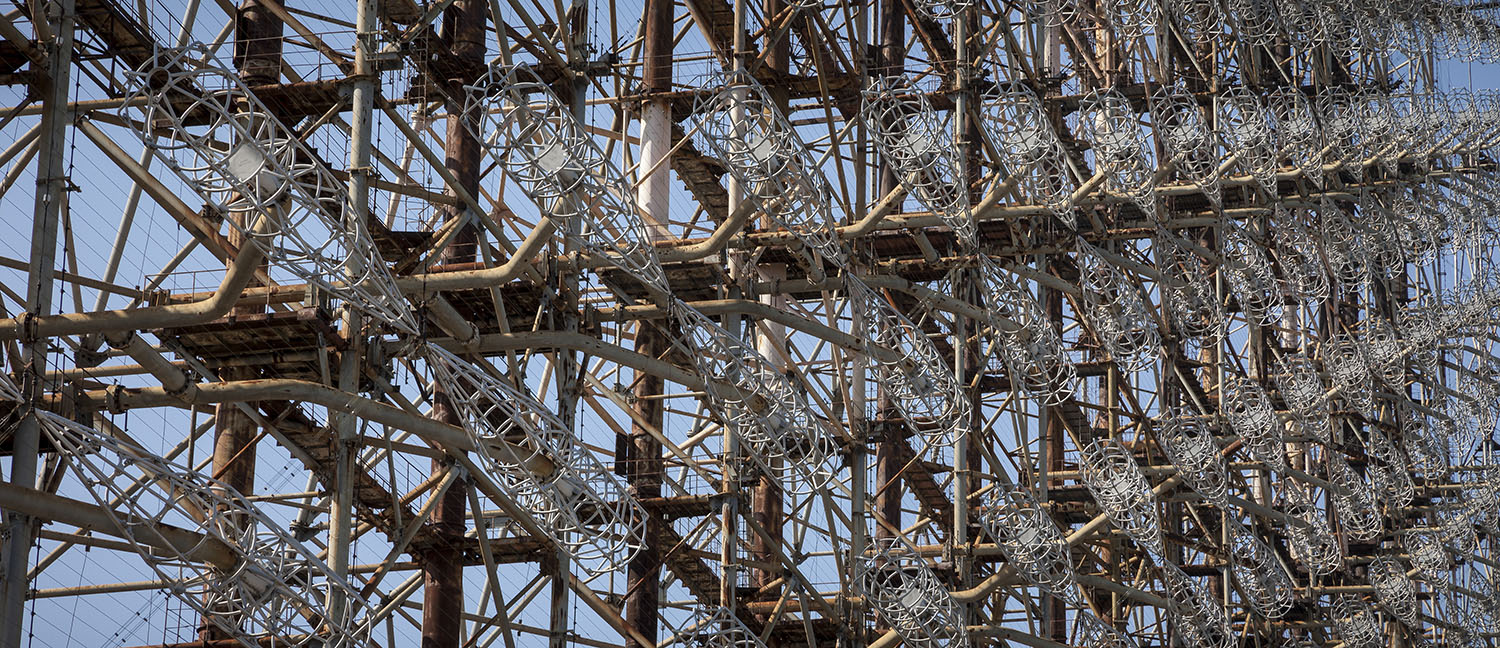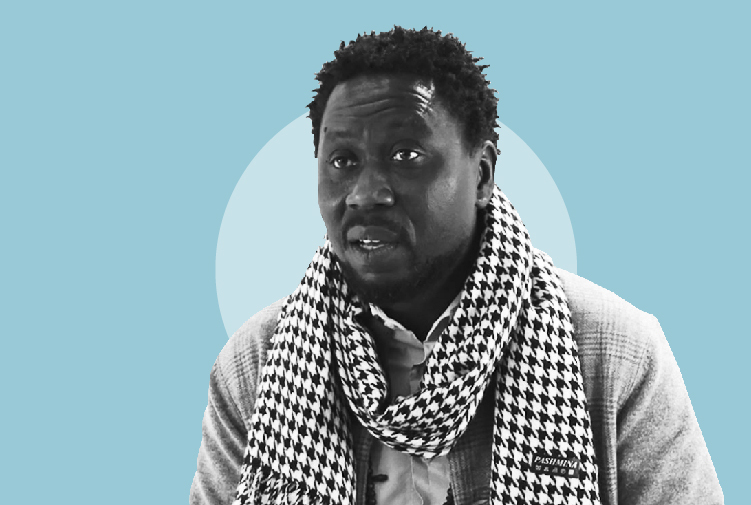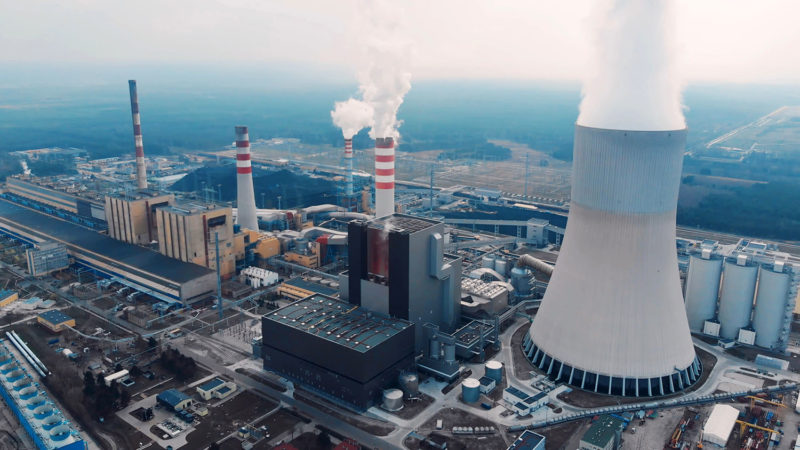

How does the conflict in Ukraine affect us?
The geopolitical adventurism between the United States and Russia in Ukraine is far removed from us. However, it is a conflict with economic consequences that are already affecting us. Agent 11Onze Xavi Viñolas, an expert in geopolitics, explains what they are.
The escalation of tension between Russia and the United States on the Ukrainian chessboard is of great concern to certain sectors of the European economy. Heavy industry, the fruit —mainly citrus fruit— and vegetable sectors, and the wine and oil industries have already warned that, if sanctions are imposed on Russia, exports could be harmed and there could be a rise in the price of raw materials, which could lead to a drop in production. These concerns are all the more relevant as Europe seeks to put the pandemic crisis behind it, which has left many sectors shivering.
The fears of these sectors are well founded. The effects of the sanctions that the last two American administrations imposed on Russia after it supported Crimea politically and militarily in 2014 to gain independence from a Ukraine that had turned its sympathies towards the United States and NATO are still very much in the forefront of their minds. These punishments, and the pressure exerted by the US on the European Union (EU) to follow its orders, highlight the risks for Spain and the rest of the EU of taking part in this game of hard-power economic-political imperialism.
The rise in the price of raw materials such as aluminium, which occurred with the sanctions in force, could extend to metals such as nickel, copper, palladium and platinum, of which Russia is an important producer, and which are suffering historic price rises. The veto on the fruit and vegetable sectors, imposed by Russia in 2014, and which now see the hope of a return to the pre-conflict level of exports fading, are just one example of the possible economic repercussions of this crisis that could affect Spain.
Agricultural organisations in the wine and olive oil sectors have also expressed their concern over possible new sanctions. For this reason, they have asked the EU for measures to guarantee market stability, or to compensate for losses due to exports to Russia that have not been replaced by other markets.
The gas conflict
Beyond the economic consequences in the various sectors, behind the tension between Russia and the United States there is also the gas conflict. If the flow of oil into the old continent through pipelines was already one of the main triggers of the conflict that took place in Georgia in 2009, the same can be said if we talk about gas and pipelines in the case of Ukraine.
The United States’ staunch opposition to Nord Stream 2 —and the consequent imposition of sanctions on Europe for refusing to follow Washington’s directives to cancel the project—, coupled with tensions in Ukraine, has been instrumental in driving up energy prices. And this rise, on the other hand, also benefits imports of much more expensive liquefied gas from the US to Europe.
An escalation of the conflict could also have an impact on Russian oil production, either by choice or by inability, which would drive up oil prices at a time of runaway inflation and when many countries are just beginning to see an economic recovery after the Covid-19 crisis.
The new cold war
We cannot forget that geopolitical tension on Russia’s borders goes back a long way. Specifically, in Ukraine it has its closest roots in the 2014 electoral fraud —which some analysts consider to be a real “coup d’état.” It was then that the current Ukrainian leadership came to power, with well-founded suspicions of active US collaboration. A good example of this complicity is the expletive —the famous “Fuck the EU!”— that US Under-Secretary of State Victoria Nuland directed at the European Union when it refused to support them.
These elections spurred a declaration of independence by the then Russian-speaking Ukrainian provinces of Donetsk and Luhansk, powerful industrial zones that Ukraine had to accept that it was losing without remedy, just as it did with the Crimean peninsula and the autonomous city of Sevastopol. This was one of the last responses of part of the citizenry against the oligarchy that had forcibly imposed itself on power, with the interference of the administration led by Barack Obama.
The mistrust of some Ukrainians was, in fact, more than justified. Up to three members of the Ukrainian government that was installed after the elections were foreign ministers who, according to international media such as the BBC, were said to represent the interests of US lobbies. Since then, the tug-of-war between the Ukrainian government and Russia has continued.
On the one hand, Russia feels the danger of an offensive against Donetsk and Luhansk, and this has justified some of the Russian troop movements on the Ukrainian borders. Moscow fears a repeat of the events of last April, contrary to the Minsk Agreements —signed by Germany, Russia, France and Ukraine in 2015 to alleviate the civil war that erupted in the country after the fateful elections.
And, on the other hand, Ukraine has expressed fears of a rapid Russian invasion of its territory in the wake of these Russian movements on the border, a narrative fuelled by the United States. It is this latter fact that has led to the current escalation of tension and has justified the US and its allies’ increased military support for Ukraine. In this context, diplomatic efforts are proving fruitless so far, despite Russia’s announcement of a gradual withdrawal of troops on Ukraine’s borders.
In the end, what the latest episodes in Ukraine show is that a new cold war is underway. The background to all this is that Russia feels really threatened by the proximity of NATO —which has become the global agency of American interests— on its borders: not only by the military deployment, but also by the entry into the Atlantic organisation of Baltic countries that were historically part of the Russian orbit; and to which Georgia and Ukraine now want to be added.
It must be understood that bringing all these countries bordering Russia under NATO’s influence is a strategic plan by Washington, which has been in breach, almost from the outset, of the commitments it made to Boris Yeltsin not to control and covet Russia’s borders after Perestroika. Several declassified documents show how, at the same time that Clinton was negotiating with Yeltsin, the United States was already planning a strategic rapprochement outside the limits of the agreement with Moscow. Even so, the military confrontations between these two world powers in Europe —first in Georgia, and now in Ukraine— have made Moscow’s red lines very clear.
Moreover, we cannot ignore the fact that this scenario is doubly complicated, if we take into account that the sovereign debt crisis has exhausted many of the tools that central banks had to stimulate the economy, and that it makes us question the ‘cui bono’ behind the actors fuelling this conflict.
11Onze is the fintech community of Catalonia. Open an account by downloading the super app El Canut on Android and Apple and join the revolution!





Sorprèn positivament trobar explicacions tan encertades sobre aquest conflicte.
Celebrem que trobis que sigui així. Intentem tenir molta cura i rigor a l’hora de fer els nostres articles, que com ja deus de saber, són totalment neutrals i objectius, i per tant, sense cap tipus de vici, influència o tendència. No estem casats amb ningú, i diem les coses tal qual les veiem, i filtrant rigorosament les notícies que ens arriben… Moltes gràcies pel teu comentari!!!
El gas es el que més està pujant, avia’m com va, crec q encara es massa prompte per pendre mesures particulars, però sembla q caldrà preparar algun plà, com canviar la caldera gas per un termo elèctric per a escalfar l’aigua,sense q ens pugin la factura de gas excesivament, i el mateix amb la calefacció q alguns termos electrics accepten fins a 8 bars de pressió per a alimentar les calefaccions(entre 1’5 i 2bar) amb aigüa calenta, ja veure’m
Doncs sí, Jordi, aquest hivern haurem de veure com ho fem per contenir la despesa en les factures de gas i electricitat. Moltes gràcies pel teu comentari!!!
Gràcies per l’article. Podries reelaborar-lo de nou després de l’invasió russa?
Gràcies, Gabriel, aquest divendres vaig a parlar del tema a Estat de la Nació, i publicarem l’entrevista i un article.
Molt interessant article, i ben documentat.
Moltes gràcies, Pere.
Bon resum i explicació de la visió-situació geopolítica de la zona i els seus actors. Gràcies
Gràcies a tu pel comentari, Pere.
Impecable👌🏿
Gràcies, James.
👏
Gràcies Daniela
👌
Gràcies, Joan
Un article impresionant de com estar escrit i del que ens diu,una lliçó dels anomenats abans dos blocs,podriem dir si tornem amb aquella guerra freda o ooder mai s’ha deixat,unicament amortiguat
Gràcies
Gràcies Alicia, com dius tu, en realitat la dissolució de l’URSS només va significar una pausa d’aquesta guerra freda.
Gràcies, Alícia pel teu missatge!
Ok 👍
Gràcies, Josep.
D’acord amb la Mercè. TVC hauria d’informar més del que passa als països catalans i a tot el món, que cada vegada ens estem tancant més a les 4 provincies espanyoles.
Totalment d’acord, especialment quan les conseqüències d’aquests esdeveniments ens poden afectar més del que ens pensem.
Gràcies pel teu comentari Josep!
Un article amb molt suc. Els ciutadans corrents no estem acostumats a llegir amb profunditat temes de geopolítica amb enllaços a les fonts. Vaja, crec, en vista a la cultura general del país. Els mitjans locals només serveixen per a publicar enunciats cridaners. La incultura periodística és una de les causes de l’encongiment del cervells.
Gràcies per a situar-nos cada vegada més en el món, que ens agradi o no és el que hi ha.
És trist, però és veritat. Es fa difícil trobar informació als mitjans que no segueixin una mateixa línia editorial dictada pel qui paga, i més enllà del sensacionalisme sense substància. Gràcies Mercè.
Gràcies a tu per ser-hi, Mercè! En Xavi Viñolas ens ho fa entenedor i és rigorós en aportar-hi fonts contrastades.